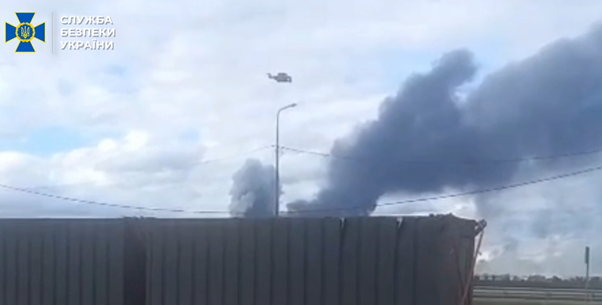Russia’s nuclear deterrent against US not 'significantly' affected by Ukraine’s Operation Spiderweb, official claims

Russia's nuclear deterrence capabilities have not been significantly impacted in recent Ukrainian drone strikes on several military airfields, Russia's Deputy Foreign Minister Sergei Ryabkov said on June 11.
His comments come days after Ukraine launched a coordinated drone attack, dubbed Operation Spiderweb, targeting at least four major Russian air bases and reportedly damaging dozens of aircraft, including strategic bombers and airborne early warning planes.
Ryabkov claimed that the extent of the damage from the attacks has been "greatly exaggerated" and that none of Russia's strategic forces were weakened.
"Our nuclear deterrence potential against the U.S. and any other potential adversary has not suffered significant damage," Ryabkov said, according to the state-run news agency RIA Novosti.
Russia has repeatedly issued nuclear threats against Ukraine and Western countries since launching its full-scale invasion in February 2022. Those threats have so far not materialized, as Russia continues to wage its war.
The Spiderweb attack was planned over 18 months and carried out by the Security Service of Ukraine (SBU), and is believed to have disabled or destroyed a significant portion of Russia's long-range bomber fleet.
Ukraine claims the operation damaged 41 aircraft and disabled up to 34% of Russia's strategic bombers. Independent satellite imagery has confirmed destruction or damage at several sites, including multiple Tu-95MS and Tu-22M3 bombers at the Belaya air base.
President Volodymyr Zelensky said on June 4 that nearly half of the planes hit in the attack are impossible to repair. NATO estimates that between 10 and 13 Russian planes were completely destroyed, and more were damaged.
Ryabkov previously acknowledged damage to Russian aircraft but claimed that all of them could be put back into service.












